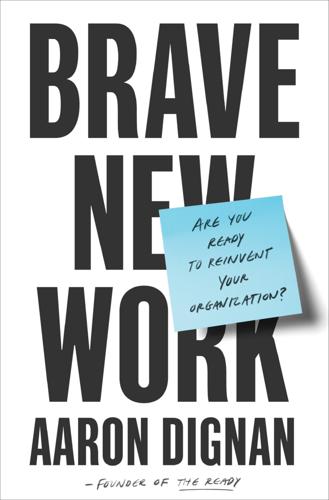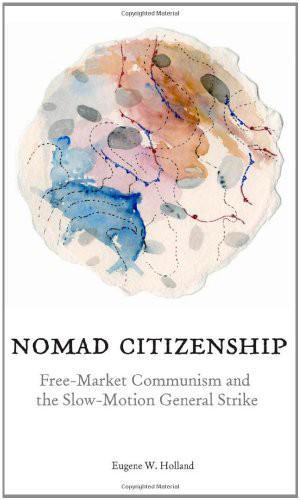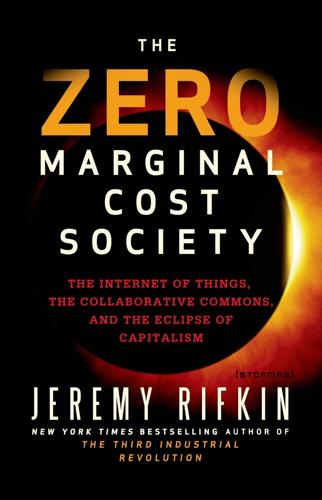
Brave New Work: Are You Ready to Reinvent Your Organization?
by
Aaron Dignan
Published 1 Feb 2019
“Twentieth-century economics assured us”: Kate Raworth, “A healthy economy should be designed to thrive, not grow,” TED video, 15:53, April 2018, www.ted.com/talks/kate_raworth_a_healthy_economy_should_be_designed_to_thrive_not_grow. “Can anything more insane be imagined?”: Bertrand Russell, In Praise of Idleness, and Other Essays (London: Routledge, 2004), 6, www.zpub.com/notes/idle.html. known as the Rochdale Principles: “The Rochdale Principles,” Co-operative Heritage Trust, accessed September 1, 2018, www.rochdalepioneersmuseum.coop/about-us/the-rochdale-principles. one study of cooperatives: Virginie Pérotin, “What Do We Really Know About Worker Co-operatives?” Co-operatives UK, no date, www.uk.coop/resources/what-do-we-really-know-about-worker-co-operatives. “pre-written into code”: “What Is DAO,” Cointelegraph, accessed July 31,2016, https://cointelegraph.com/ethereum-for-beginners/what-is-dao#how-daos-work.
…
Meanwhile, it’s possible that one part of the future of incorporation is actually a blast from the past. Cooperatives, which are jointly owned and democratically controlled organizations, have existed for hundreds of years, with the earliest examples emerging in the late eighteenth and early nineteenth centuries. Co-ops generally embody a set of ideals known as the Rochdale Principles: (1) voluntary and open membership, (2) democratic member control, (3) economic participation by members, (4) autonomy and independence, (5) education, training, and information, (6) cooperation among cooperatives, and (7) concern for community. These manifest in an organization that is essentially for the people, by the people.

Ours to Hack and to Own: The Rise of Platform Cooperativism, a New Vision for the Future of Work and a Fairer Internet
by
Trebor Scholz
and
Nathan Schneider
Published 14 Aug 2017
Sharing used to mean something we do with the people we know and trust. In the so-called sharing economy, it means more convenient transactions that take place on distant servers somewhere. Convenience is great, but all along there has been a real sharing economy at work, the cooperative economy. One can trace the modern cooperative movement to the Rochdale Principles of 1844, in England, though it had precursors among ancient tribes, monasteries, and guilds around the world. The rudiments of this stuff could be basic common sense: shared ownership and governance among people who depend on an enterprise, shared profits, and coordination among enterprises rather than competition.
…
From the history of cooperatives in the United States, we learned that they are indeed able to offer a more stable income and a dignified workplace. While the necessary enthusiasm of makers doesn’t always sit well with justifiably skeptical scholars, their dialogue is important. Jointly, they could rewrite the Rochdale principles for the digital economy, for instance. Education is an essential cornerstone of platform cooperativism. Platform co-ops should consider the following principles. The first one, which I explained already, is communal ownership of platforms and protocols. Second, platform co-ops have to be able to offer income security and good pay for all people working for the co-op.
…
BUILDING THE PEOPLE’S OWNERSHIP ECONOMY THROUGH UNION CO-OPS MICHAEL PECK Cooperatives and unions started out their organized lives together. In gritty Northwest England, during the Industrial Age’s heyday—Manchester in the 1840s—the Rochdale Society of Equitable Pioneers composed their Rochdale Principles, which became the foundation of the modern cooperative movement. It was in this same region, around the same time, that industrial labor unions were beginning to flourish. Since then, diverging histories, experiences, and destinies have caused cooperatives and unions to run along mostly autarchic paths, sometimes parallel, too infrequently connecting.

Nomad Citizenship: Free-Market Communism and the Slow-Motion General Strike
by
Eugene W. Holland
Published 1 Jan 2009
The federation thus retains the principles of equality and self-sufficiency that are crucial to its success as a self-organizing and self-managed production cooperative completely independent of hired labor and private capital.3 Of course, the concept and institution of cooperatives has a long his tory, dating back to the late eighteenth century. Among the best-known early cooperatives was the Rochdale Equitable Pioneers Society, which was founded in Rochdale, England, in 1844 and whose Rochdale Principles have since become a touchstone for cooperative organizing around the world (including Latin America). Unlike Robert Owen’s slightly earlier programs of philanthropy and community development from on high, the Rochdale Society was formed bottom up by a group of destitute weav ers who pooled meager resources to establish a consumer cooperative; its success quickly spawned cooperative housing and several manufacturing cooperatives in Rochdale itself and eventually generated an actual coopera tive movement throughout the industrializing world.4Within two decades, it was already a force to be reckoned with by Marx and Engels and other organizers of the First International.
…
Healy, Llamas, Weaving, and Organic Chocolate, chapter 6. 4. O n the history of the Rochdale pioneers, see Brown, Rochdale Pioneers, and H olyoake, History o f the Rochdale Pioneers. On the cooperative movem ent and workers cooperatives more generally, see Adams, Putting Democracy to Work, esp. 11-14 on the Rochdale principles, and Dow, Governing the Firm. 5. Indeed, M arx claimed th a t the cooperative movement constituted a “greater victory of the political economy of labor over the political economy of property [than the Ten H ours Bill]” limiting the legal length of the w orking day. See M arx, “Inaugural Address of the International Working M en’s Association (The First In ternational),” in M arx and Engels, Collected Works, 20: 5 -1 3 ; quotation is from 10 . 6.

The Zero Marginal Cost Society: The Internet of Things, the Collaborative Commons, and the Eclipse of Capitalism
by
Jeremy Rifkin
Published 31 Mar 2014
“Co-op Facts & Figures,” National Rural Electric Cooperative Association, 2013, http://www .nreca.coop/members/Co-opFacts/Pages/default.aspx. 60. Ibid. 61. “Cooperative Principles and Values,” International Cooperative Alliance, 2011, http://www.cdi .coop/icaprinciples.html. 62. Ibid. 63. “The Rochdale Principles,” Rochdale Pioneers Museum, http://www.rochdalepioneersmuseum .coop/about-us/the-rochdale-principles. 64. “Cooperative Facts and Figures,” International Cooperative Alliance, http://ica.coop/en/whats -co-op/co-operative-facts-figures (accessed September 4, 2013); “Cooperatives Around the World,” 2012 International Year of Cooperatives, 2012, http://usa2012.coop/about-co-ops /cooperatives-around-world (accessed November 12, 2013). 65.